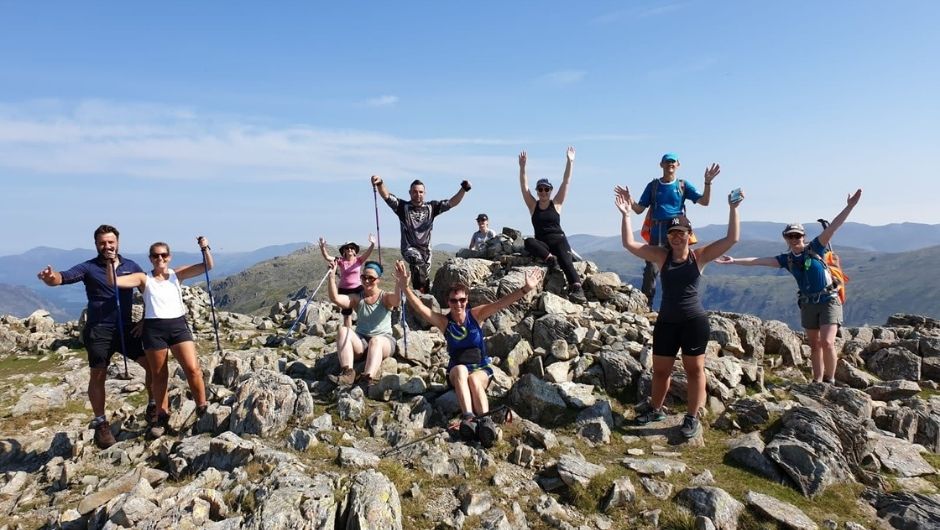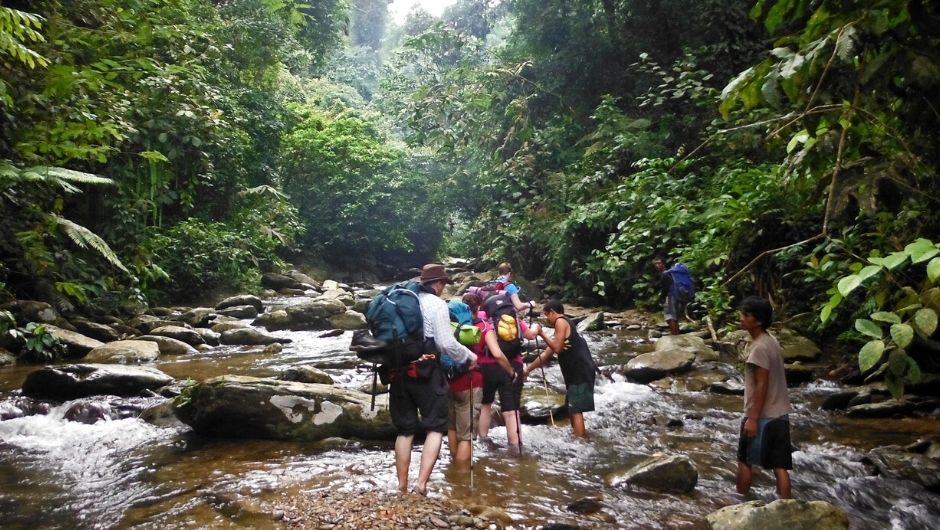
At Charity Challenge we acknowledge that it is our responsibility to ensure that we do all we can to contribute to making better places for people to live in, in the countries where we operate, and better places for you to visit. We’re proud to have donated over £500,000 to local community organisations in our host countries, helping to support medical, educational and environmental projects, and to carbon offset projects around the world.
Following some feedback from a recent challenge, we have updated our pre-challenge information and Responsible Tourism Policy to place a greater emphasis on respecting, protecting and enjoying the outdoors.
Our Responsible Tourism aims are to:
- Use locally owned services whenever possible
- Respect, protect and enjoy the outdoors
- Encourage transparency with our ground teams about how responsibly they manage our tours
- Support local community projects in the countries in which we operate
- Move towards using local leaders on all overseas challenges rather than foreign leaders
To find out more about our policy and see how we are implementing this please click here
We also have the following policies: Child Protection; Animal Welfare; International Porters Guidelines.

How can you be more responsible on a challenge?
You have an important role to play in ensuring our guidelines for responsible tourism are carried out during the challenge. Participants are encouraged to enter into the spirit of adventure, but to do so with respect for the places and people you visit.
Remove all unnecessary packaging
Many countries do not have the same refuse disposal systems as you are used to. A typical challenge itinerary generates a surprising amount of waste. We ask that you all do as much as possible to minimise this, and to see that rubbish is disposed of responsibly. Be particularly aware of the problems of disposing of batteries; if in doubt bring them home with you.
Be conservative with water
In many places, water is a scarce resource and without careful use, local people and wildlife suffer. We provide a generous amount of clean drinking water on our challenges, and as much as possible we use tap, filtered or purified water rather than purchasing bottled water. The water that we provide to drink will always have been treated to make it safe to drink. When cleaning your teeth, turn the water tap off whilst you are brushing. Dirty water used from washing either yourself or dishes should be scattered on the ground 100ft away from river sources if a drain is not available, do not use non-biodegradable soap in lakes or streams.
Don’t leave your rubbish behind
Please take it with you. Your rubbish is not often biodegradable, is always unsightly, and may take years to biodegrade especially in desert or mountain environments. In some instances, rubbish can cause great harm to wildlife. It may seem that local communities have little regard for their environment and contribute heavily to the problem of rubbish, but waste disposal is often very limited. Please don’t let our presence add to these problems. Please carry your rubbish with you and dispose of it at the next camp or town you come to. Try and leave the area as you would want to find it, this may include picking up other people’s rubbish at your camp site.
Smoking
If you must smoke, you should collect the matches and cigarette butts when finished and put them in your pocket and dispose of them properly when you get to camp. Not only does it present a fire risk, cigarette butts take many years to decompose and may harm local wildlife.
Noise
Noise should be kept to a minimum so as not to disturb the animals. Animals should not be touched, goaded, fed or disturbed in any way. Don’t try to approach animals as this may cause them to panic and injure themselves as they try to escape.

Damage
Try not to damage any plant life, which you come across. This includes not picking flowers, which might be rare. When trekking, follow your guides and keep to the path. Going off the beaten track could result in damaging sensitive soil and vegetation. Removing coral damages the marine ecosystem and is nearly always unsustainable. If you are near coral, please bear in mind it is made up of tiny animals and takes centuries to grow. Treading on coral can cause severe long term damage.
Accommodation
Most challenges begin and end in a hotel. Please turn off air conditioning and lights when you are not in the room. Also ask the challenge leader to talk to hoteliers about towel washing options and please use the towels more than once rather than asking for (or allowing) them to be washed every day.
Toilets
As many of our challenges will take you off-the-beaten track, there are often a lack of toilet facilities. On treks it is unlikely you will have a flushing toilet. Instead a toilet tent will be erected and a pit dug. Any paper rubbish should be collected, not buried. If you are out for the day and no toilet is available please ask your challenge leader what the appropriate action is and ensure you don’t leave any paper waste behind (you can take nappy bags for this). Where a toilet is provided, please use it, as opposed to finding your own rock to crouch behind. Toilet paper is unsightly and takes a long time to decompose.
Tipping
Tipping is perfectly acceptable and can form the base of the local economy, with some relying mainly on tips. Please refer to the Trip Notes for the trip for the recommended amount. Your challenge leader will advise you during the challenge how this is distributed between the crew.

Respect
Respect local customs and follow high standards of courtesy. Treat images of the heads of state with respect. Be aware of the differences in social behaviour and behave appropriately. Standards of acceptable behaviour vary greatly from place to place, and people of developing countries can often be easily shocked by ‘western’ behaviour. Displays of intimacy are often considered not suitable in public. Don’t make promises you can’t keep. So if you say you are going to write, do. Learn some words in the local language to help make contact and conversation.
Observe the local dress code in the areas in which you are travelling, e.g. cover up in holy places. Local people can feel deeply offended when visitors do not observe the dress code and this can also cause unwanted attention. Respect property and their surroundings. Leave places you visit as you found them, or even better. Ensure you know the appropriate behaviour for the situation you are in, for example, ask your leader if it is essential to remove your shoes before entering a building.
Photography
Ask permission before taking someone’s photo. Many people don’t like having their photo’s taken and there may be religious reasons for this. Don’t pay children for photos’ as it will encourage them to beg. If they have the opportunity to go to school they may not to be so willing to do so if they can make money from tourists by looking cute. Be cautious when taking photos of bridges, official buildings, persons in uniform, planes and airports, or religious buildings and ceremonies. Ask your challenge leader for advice if unsure.
If you need any help or advice about any of the above points then please don’t hesitate to email us here in the office at challenges@charitychallenge.com and we can give you some additional guidance.



No Comments